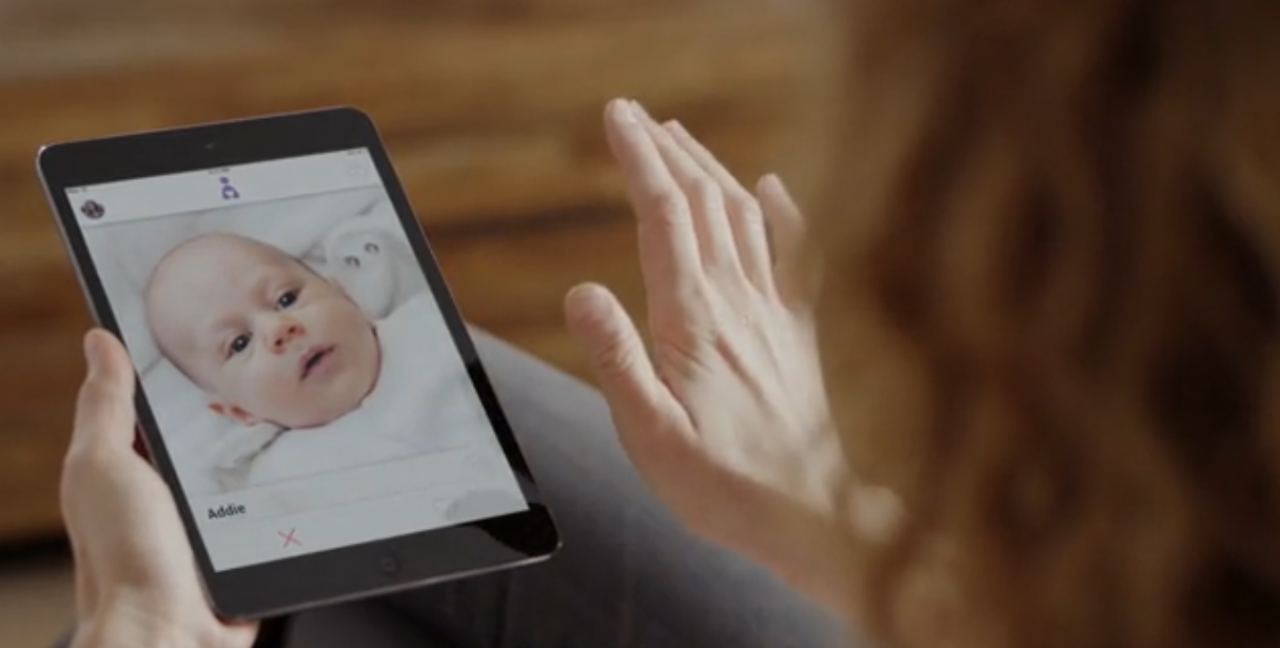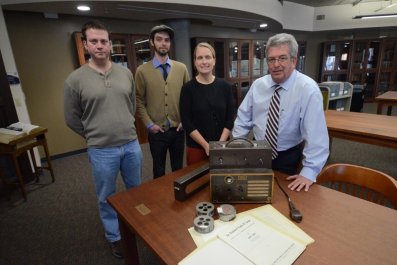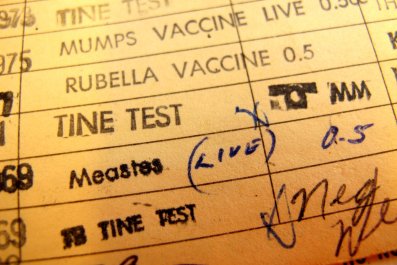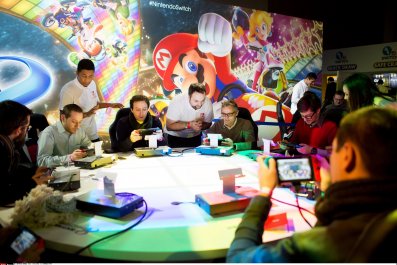It's like Tinder, but for child adoption.
No, this is not a Black Mirror synopsis. That's the concept behind Adoptly, an ill-advised new startup that aims to make the adoption process faster, easier and more, well, millennial-friendly.
"We thought in this day and age there must be a better way—something that could bring families together at the speed of modern life," the company co-founder Josh Weber says in a sleek launch video, which shows a happy couple swiping left on babies. As interface designer Ankush Desai explains in the video, "Adoptly is an app-based platform that seamlessly connects prospective parents to adoptable children nearby."
Adoptly debuted earlier in the month to a flurry of tech coverage, but the responses weren't very positive. "Adoptly, the Tinder for child adoption, is indistinguishable from parody," The Verge (rightly) reported. "Swiping left and right on pictures of adoptable children is dehumanizing," tech site Engadget argued in a lengthy takedown that blasted the launch video as "insensitive." "There are many other issues with the app," Fox News declared. Observer reached out to adoption experts, whose reactions ranged "from very skeptical to downright outraged."
The only problem? The app doesn't exist. The whole thing is a hoax.
Related: How a fake dog poop app fooled the media
The hoax was created by Ben Becker and Elliot Glass, who in 2016 tricked tech publications into believing a fake dog poop-scooping app called Pooper was real. When we interviewed the Pooper creators in July, they told us they had more schemes on the way, and they've kept true to this promise. Unlike Pooper, Adoptly arrived in the form of a Kickstarter campaign. The catchy slogan: "Parenthood is just a swipe away."
The fictitious app follows the same formula of many doomed startups: Pick a massively successful app (in this case: Tinder), rip off its design and mechanics (swiping right or left) and apply it to some untapped market, no matter how unseemly (adoption). To make it believable, they concocted a fictional founder who spoke in self-aggrandizing disrupt-isms like "The adoption industry at large is a little bit underserved by the tech industry."
The duo hoped to mock a society dazzled by apps and the mindless quest for convenience. "We wanted to take the piss out of our tech-obsessed world and satirize the way that people are interacting with technology and the way they desire to make things way more convenient and instantly gratifying," says Becker, an advertising creative director in Los Angeles. "It jumps into a little bit darker, more personal territory than Pooper did."
Still, Becker adds, "the goal was the same. We wanted to just start a conversation about the nature of instantaneous judgment and the way that tech is training our brains to like or dislike something based on fragments."
The founders were intrigued by the somewhat scolding tone of the media coverage. "It seemed like certain reporters had a story in mind that they wanted to write," Becker says. "And verifying whether the company was legit or not was second to writing this opinion piece that they wanted to put out."
By January 20, Kickstarter suspended the fundraising campaign without contacting the founders or divulging why. The pair had already raised about $4,000 but had no intention of actually keeping the money or going through with it. Adoptly migrated over to Indiegogo but soon found itself suspended there too. "We put it up and it was immediately taken down within, what was it, 12 hours?" Becker says.
Generally, media outlets were a bit more skeptical about Adoptly than they were with Pooper. A German outlet went so far as to figure out that the website was being hosted on the same server as Pooper. Still, most took a safe, if lazy, route: covering the app while explaining that it might be fake, allowing them to extract page views from the concept with minimal effort, without risking humiliation. Instead of "fake news," it's "fake? news."
Becker and Glass were surprised that anyone fell for it. "We never thought anyone would really believe this app would exist," says Glass. His accomplice, Becker, adds, "We tried to pack it almost to a cliché [with buzzwords]. Like overflowing with sort of blue-sky thinking and tech-style phrasing.... It does seem pretty absurd." But considering the many other very bad, very real app ideas—Yelp for people, maps to avoid "bad neighborhoods"—maybe it's not that surprising.
The creators received emails from people interested in helping to build the app. They also received emails from others offering genuine insights into how to improve or streamline the adoption process. They've offered to connect anyone with adoption improvement ideas to potential investors.
"It's a net positive to raise awareness about an industry that doesn't get talked about a lot," Becker says. "Even if this is obviously not the right solution."





















